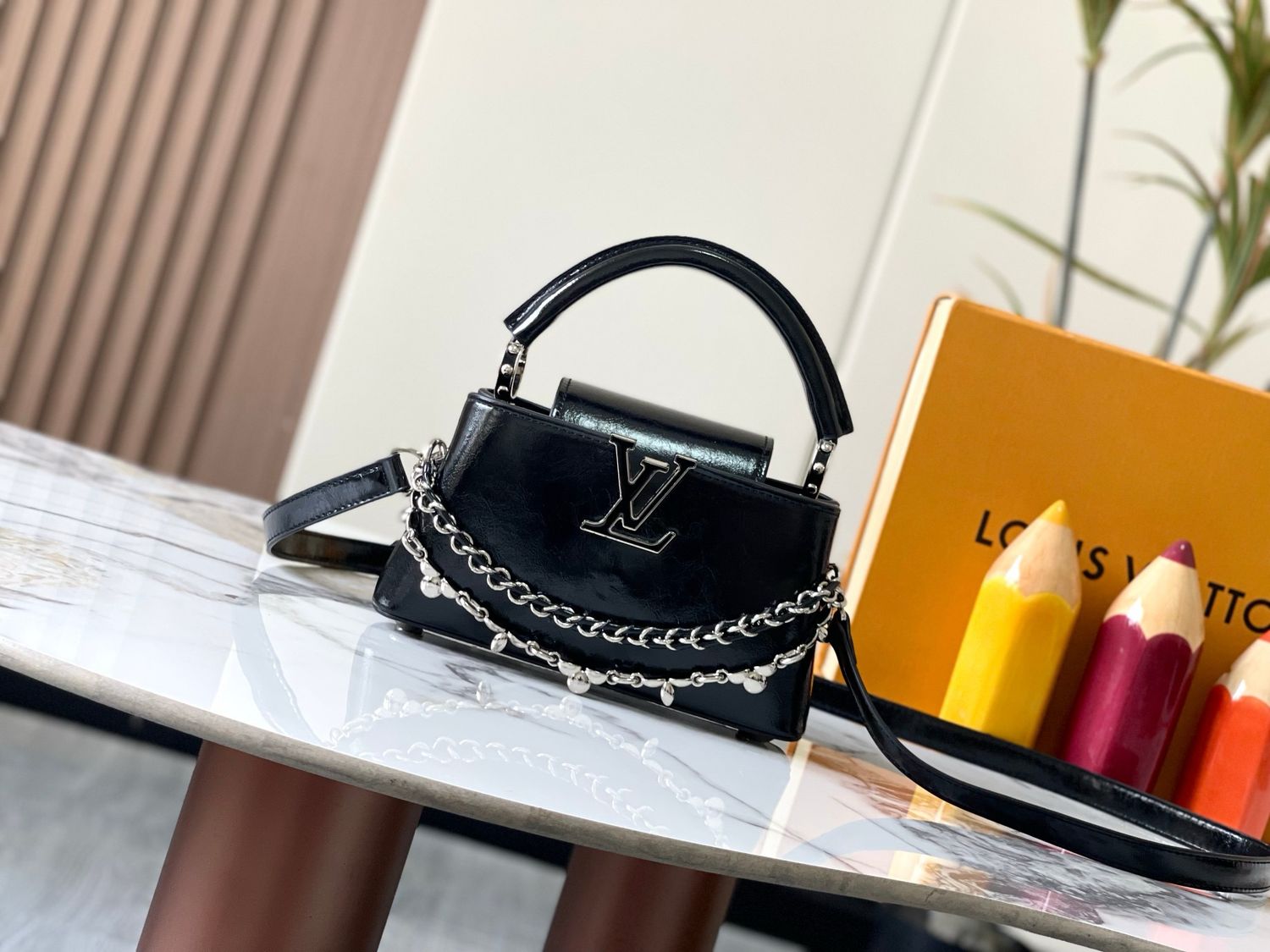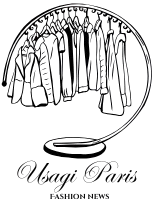Across the Sound—A Collector’s Journey with a Louis Vuitton bag
- rambutan
- 0
- Posted on

I. Leaving the Shore—The First Crossing
The ferry that morning trembled through the quiet of Seattle’s harbor,engines low,ropes loosening with the sound of release.Sorrel Ames leaned on the rail,her scarf fluttering in the draft between decks.The water below shivered into ripples of silver.She carried a weekender,a sketchbook wrapped in linen twine,and a vintage louis vuitton bag that had aged into the color of toasted wheat.The brass hardware no longer shone;it glowed.
Around her,travelers arranged themselves in gentle choreography—families claiming benches,a violinist testing a melody,tourists photographing gulls suspended mid-glide.The air smelled of diesel and cold salt.Sorrel traced one fingertip over a worn seam and thought how age often teaches design what permanence truly means.
She had bought the bag long ago in Portland,in a store that displayed antiques beside vinyl records.The clerk had said,“You’ll know when something is worth carrying.”She hadn’t forgotten.The ferry steadied,then lurched forward;the skyline tilted,dissolving into pale haze.Seattle thinned to a watercolor wash behind her.
Travel,she believed,was a practice in noticing—how light changes,how noise rearranges itself over distance.She stood until the cold numbed her hands,until water replaced architecture,and the wake stretched like a white script writing her way north.
II. Harbor Arrival—Notes from the Market Streets
Vancouver rose from the water as if built from reflection itself—glass towers,cranes,gulls.The ferry’s ramp clanged against the dock,and passengers spilled onto the pier.Sorrel walked slowly,allowing the rhythm of the crowd to fold around her.Vendors sold bouquets of eucalyptus and paper cups of chowder.A man tuned a guitar against a lamppost’s vibration.
The market smelled of citrus and wood polish.She paused at a stall where a potter lifted steaming mugs from a kiln,the glaze still singing with heat.She bought one,not because she needed it,but because the blue resembled the sea at the ferry’s midpoint.Sliding it into her tote,she thought how small purchases tether memory to place better than photographs ever could.
Farther along the boardwalk,she found a child’s chalk drawing of a whale across the planks—pink,crude,dissolving under footsteps.She smiled,took a picture,and kept walking.The city’s pulse felt quick yet unhurried,confident in its own rhythm.
At a bench near the harbor’s edge,she wrote:“Distance isn’t measured in miles but in how long it takes to stop remembering what you left.”The ink feathered slightly in the breeze.
III. Granville Lines—Where Makers Shape the Morning
By late morning,she reached Granville Island.Bridges arched overhead like chords strung between notes.Inside the converted warehouses,light sifted through skylights and landed in shards across tables of glass and clay.
A glassblower rotated a pipe,coaxing molten form into transparency.Sorrel watched the orange sphere pulse before turning clear,a small miracle repeated every few minutes.Nearby,a seamstress fitted jackets onto wire mannequins,her tape measure draped like jewelry.
Sorrel loved this atmosphere of making—the smell of dye,the percussion of hammers,the quiet certainty of repetition.A shopkeeper spoke with her about reconstructing vintage garments.“Every repair,”he said,“is an act of respect.”She nodded;it sounded like something she’d write but never publish.
Outside,gulls wheeled over the docks.She sat on a bench to sketch outlines of cranes against the light.Her pencil hesitated mid-line;movement always interrupted precision,and that was the beauty.She closed the sketchbook only when her shadow stretched long enough to touch the curb.
IV. Wheel of Light—A Pause at Playland
Playland appeared almost by accident,a flash of color glimpsed from a taxi window.She decided to stop.The park smelled of sugar and ozone,laughter carried on metallic notes.Children clutched balloons;couples leaned into the momentum of rides.
The Ferris wheel lifted her above it all.From the top,the city folded outward—harbor,forest,the sheen of roofs like coins scattered across the distance.The sky burned pale,the sea reflecting it back without argument. When the cabin descended,she saw her louis vuitton monogram bag glimmer briefly in the mirrored panel of the operator’s booth,pattern meeting motion in a fleeting alignment.
On the ground again, she wandered between game stalls,the sound of bells mixing with gull cries.She bought a paper cone of popcorn and sat beneath an awning painted with constellations.Every city,she thought,has its noise,and within it,its heartbeat.The bag beside her carried the faint scent of salt and sugar now,and she didn’t mind.
Before leaving,she rode the carousel once—not for nostalgia,but for its symmetry.As the wooden horses circled,she noticed her reflection multiplying in the mirrors:the same moment,infinite directions.
V. Silver Path—The Harbor Before Dusk
Evening lowered gently,turning the harbor metallic.Sorrel walked the seawall trail,the tide brushing the stones in a steady exhale.Bicycles passed in pairs;dogs splashed at the shallows.She stopped by a bench where a street artist sketched freighters in charcoal.
They exchanged a glance of mutual recognition—two observers cataloguing what moved.The artist gestured toward her seat;she sat.For a few minutes,they watched in silence as ferries pulled away,their wakes glowing faintly.
Her notebook balanced on her knees;she wrote a list rather than a sentence:sound,weight,horizon,return.Lists made sense when endings didn’t.She stayed until the sky thinned into blue smoke and the first lamps flickered along the promenade.Dusk,she realized,never rushed;it simply rearranged the light.
VI. Between Currents—The Long Return Ferry
The next morning’s ferry curved along a longer route.Deck chairs lined the edges;gulls followed for crumbs.Sorrel leaned into the wind,eyes watering from brightness.A woman near her adjusted a straw hat and struck conversation—light,unhurried.They spoke about travel wardrobes and how fabrics behave in salt air.
When Sorrel mentioned she’d once read a guide on how to style louis vuitton bag for coastal cities,the woman laughed.“And did it work?”
“Sometimes,”Sorrel replied.“Mostly it reminded me to pack less.”
They shared a pause that didn’t need filling.Below them,the ferry’s wake braided and unbraided like lace.Sorrel realized travel teaches balance—the kind that keeps objects steady on moving decks and thoughts anchored amid transition.She stayed outside until her coffee cooled and gulls turned into dots against the sky.
VII. Stalls of Motion—The Market Revisited
Back ashore,she returned to the artisans’ quarter.The stalls had changed overnight—new vendors,new colors.She bought a watercolor print of the harbor at dawn,pale wash over faint graphite lines.
A jeweler shaped silver wire into rings shaped like waves.Sorrel asked about his tools,and he held them up:pliers worn smooth,a file thin from use.“Good tools remember you,”he said.She smiled,thinking the same of her bag,its lining creased where pens and tickets had rested.
She wandered toward the edge of the dock where children fed pigeons.The wind off the inlet carried music from a busker’s guitar.She wrote one sentence before moving on:Movement is the only constant that still allows memory.
VIII. Windows of Water—Lunch Above the Harbor
At midday,she met an old friend at a rooftop restaurant above the quay.The tables gleamed beneath white umbrellas;the view framed the sea like a moving painting.They ordered halibut,split an apricot tart,and talked about years that had scattered them across cities.
Her friend teased her about the minimalism of her packing.Sorrel laughed,saying she’d learned to carry what blended with both travel and pause.“Magazines call it louis vuitton bag outfit ideas,”she said,“but really it’s just paying attention to proportion.”
They lingered after dessert,tracing ships’ routes with their eyes.The tide changed color twice during lunch—from slate to jade to mirror-silver.Each shift looked deliberate,as if the ocean rehearsed transformation.When they finally stood,Sorrel felt the lightness of a conversation that ends exactly when it should.
IX. Glass Tide—Thoughts Before Departure
Evening softened the edges of the city.Sorrel walked the seawall one last time.The stones still radiated the day’s heat,and the air carried salt sharp enough to taste.She stopped near a railing where a heron stood ankle-deep in water,patient as stone.
The bird’s stillness mirrored her own.She thought about collecting—how every object she loved had begun as a moment like this:unnoticed by most,necessary to her.The bag at her side pressed gently against her hip,familiar weight reassuring as heartbeat.
She opened her notebook and wrote:“Objects keep time better than clocks.” Then she tore the page free,folded it twice, and tucked it inside the interior pocket,as if to give the thought a home.
X. The Open Wake—Homeward Without End
Morning brought departure again.The ferry waited at the dock,its hull reflecting soft steel light.Sorrel boarded early to find a quiet corner by the window.Outside,the harbor blurred through mist rising from its own breath.
She rested her louis vuitton neverfull bag on the seat beside her.Inside lay the silver bracelet,the watercolor print,and the pressed sea thrift from Playland—each an anchor disguised as ornament.The engines rumbled,steady as a metronome.
As the vessel pushed off,the city folded backward into gray shimmer.She didn’t lift her camera;some scenes survive better unframed.The ferry gathered speed,and the wake opened like a long white road stretching nowhere.
She smiled and kept her eyes open a little longer,watching the wake flatten into light.
The ferry kept its pace;so did she.Some stories,she thought,don’t need an ending—only a direction.
